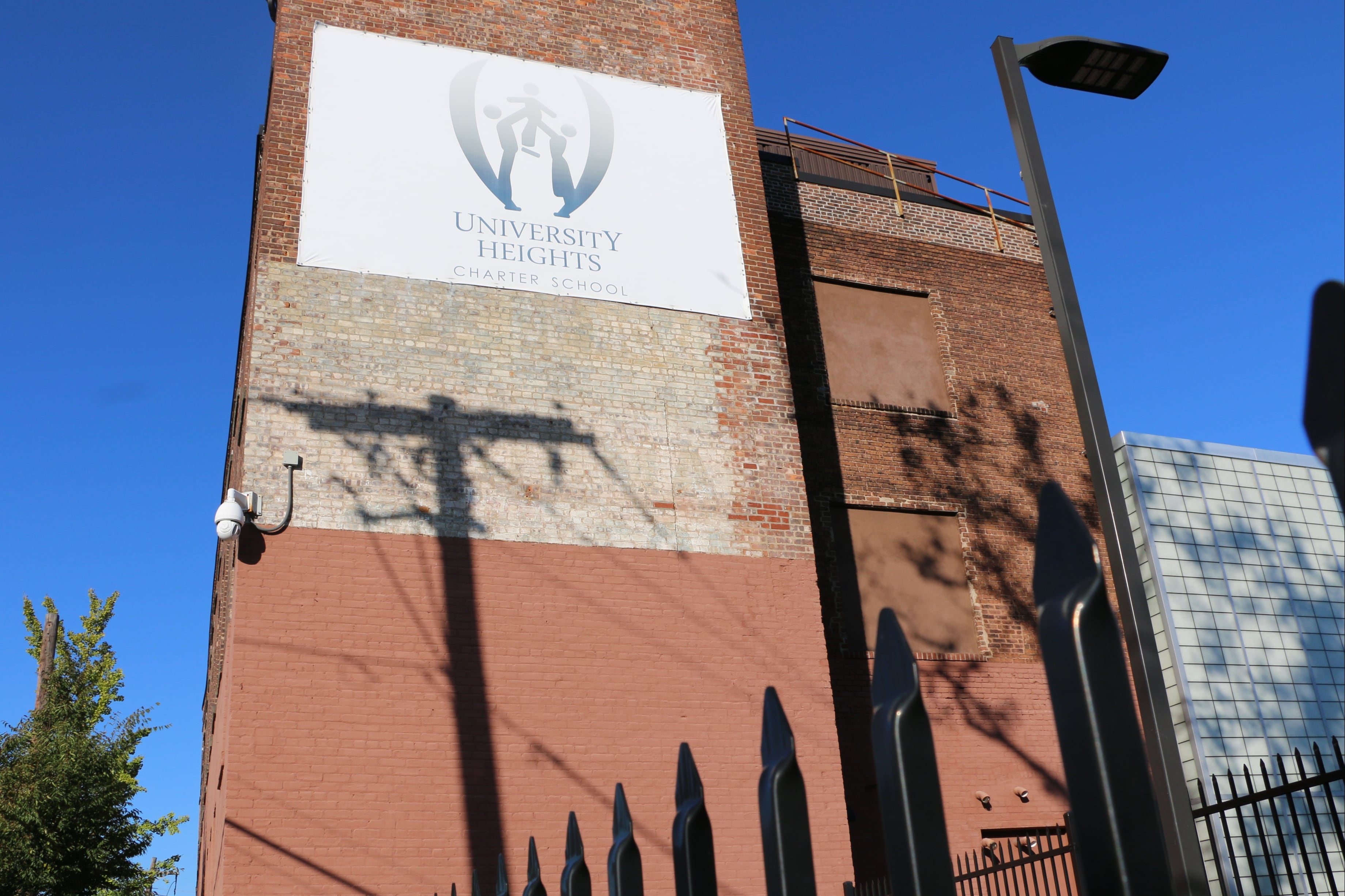Newark Public Schools is seeking to reopen a building that used to house a charter school that was shut down by the state nearly nine months ago.
University Heights Charter School, a network of three charter schools, closed last June after struggling to improve student test scores, increase enrollment, and retain its leadership team across its schools, according to a letter from the state’s department of education. The district now plans to use the facility for an elementary school.
In February, the Newark Board of Education approved a resolution to acquire the four-story property at 66-78 Morris Avenue in the city’s Central Ward. The building is the location of the former charter network’s elementary school, which had a troubled history before the state revoked its charter, a move that created disruptions for its students and families.
Newark schools proposes to use the .73-acre property as a pre-K-8 school and a maximum enrollment of 275 students, according to the board’s resolution. The building and land are valued at roughly $6.6 million, according to property records. The new property is part of the school district’s five-year capital plan.
The district’s acting communications director, Nancy Deering, did not respond to questions about the district’s plan for the new school.
University Heights opened in 2006 with just over 900 students through the support of Newark’s Bethany Baptist Church. A pre-K-8 school located between Hartford and New Streets, the 34,000 square foot property was home to roughly 600 Newark students before shutting down last year.
The state department of education officially revoked University Heights’ charter on June 30, 2022. It sent the charter network its decision in a letter dated June 1, citing low academic performance and leadership changes from previous years.
Before the school’s closure in June, teachers and students protested the closure by walking through the neighborhoods of their Newark school. The New Jersey Public Charter Schools Association also argued the closure, saying the state’s “late notification” of its decision left families scrambling to find a new school for their children last summer and worrying about additional expenses like summer school and new uniforms.
Newark Public Schools reopened the enrollment window for families of University Heights students, but many said their preferred choices were already full. The charter network was set to start summer school on July 6. Roughly 400 families had already signed up for the free program.
University Heights administrators blamed previous school leaders for the pre-pandemic low test scores that factored into the state’s decision to shut down the charter network. During the 2018-2019 school year, the charter school’s test scores ranked among the bottom 5% of high-poverty schools in the state, leading the state to designate it as a low-performing school.
In 2019, the school was put on probation after the state found issues with improving its student academic performance, declining enrollment, and frequent leadership changes.
The charter network included its elementary school, located on 74 Hartford Street, its lower school, also on Hartford Street, and Junior High School, on Fulton and Broad Streets.
Jessie Gomez is a reporter for Chalkbeat Newark, covering public education in the city. Contact Jessie at jgomez@chalkbeat.org.






